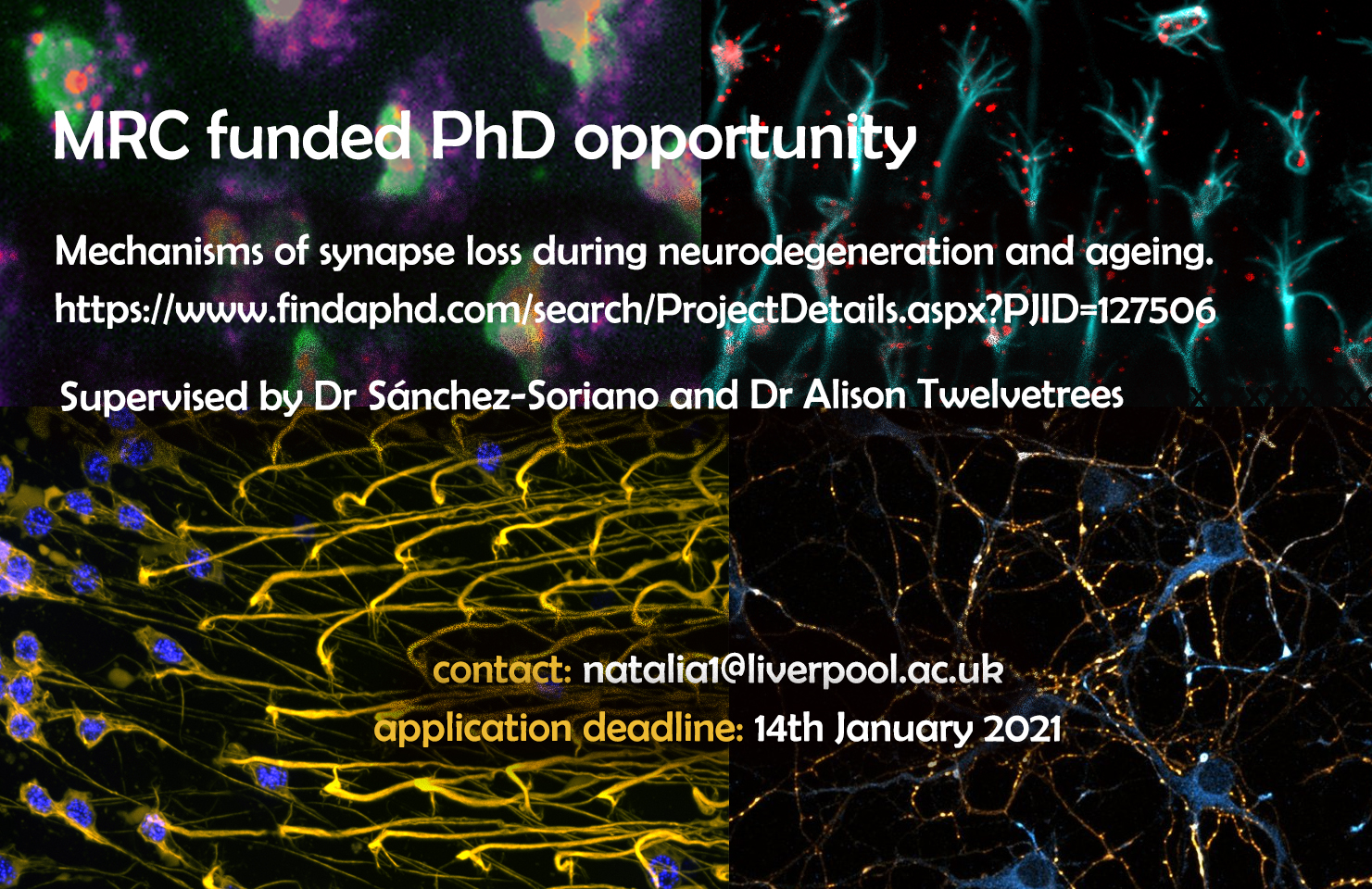Mechanisms of synapse loss during neurodegeneration and ageing
Posted by Natalia Sanchez-Soriano, on 4 December 2020
Closing Date: 15 March 2021

The aim of this studentship is to understand the processes of ageing and neurodegeneration, through the study of mechanisms of synaptic loss. You will be part of a multidisciplinary collaboration between two experienced groups at the Institute of Systems, Molecular & Integrative Biology (ISMIB, University of Liverpool) and the Sheffield Institute for Translational Neuroscience (SITraN, University of Sheffield).
Nerve cells are organised into complex neuronal networks, wiring the body or brain regions over distances up to a meter away in humans. For this, neurons extend long and thin processes called axons. At the tip of these axons, neurons establish synapses, specialised neuronal cell junctions which contain complex machinery for rapid transmission of signals to partner cells. The maintenance of this synaptic machinery fails during ageing and in disease, and the resulting synaptic malfunction is an important cause for cognitive, sensory and motor decline. Maintaining synapses requires transport of synaptic proteins from the cell body to the distant synapses up to a meter away. The Jun-Kinase (JNK) signalling pathway is a key regulator of this process. Importantly, physiological changes such as oxidative stress typically occurring during ageing and neurodegeneration, alter JNK activation patterns. The goal of this project is to understand how the JNK pathway regulates the transport and precise delivery of synaptic components and how it links to synapse loss occurring during ageing and disease.
This studentship represents a unique opportunity to integrate in vivo models of ageing and neurodegeneration capitalising on the brain of the fruit fly Drosophila as a highly efficient model, together with mouse and rat neuronal models and in vitro reconstitutions assays. Using these systems, you will study the role of JNK during the regulation of intracellular transport and synaptic decay. You will receive training by the two supervisory groups in neuronal cell biology (fly neurons in culture and in vivo in the adult Drosophila brain, primary neuronal culture from mouse and rat), in genetic strategies, in quantitative live imaging of cultured neurons and whole tissue, in analytical methods, techniques required for in vitro reconstitution of transport assays with complementary quantitative analysis. Understanding the causes of synapse decay during ageing or disease is crucial to providing new avenues for therapeutic intervention.
Creative individuals with an eye for detail are encouraged to apply. The successful applicant will be based in the Institute of Systems, Molecular & Integrative Biology supervised by Dr Sánchez-Soriano (sanchezlab.wordpress.com/research), whilst working closely with the SITraN lab, Department of Neuroscience in Sheffield under the supervision of Dr Alison Twelvetrees (www.twelvetreeslab.co.uk). Applications from candidates, ideally with some background in cell biology, genetics, neuroscience and/or biomedical sciences are welcome. Interested applicants should contact Dr Sanchez-Soriano to discuss the project: n.sanchez-soriano@liverpool.ac.uk.


 (No Ratings Yet)
(No Ratings Yet)